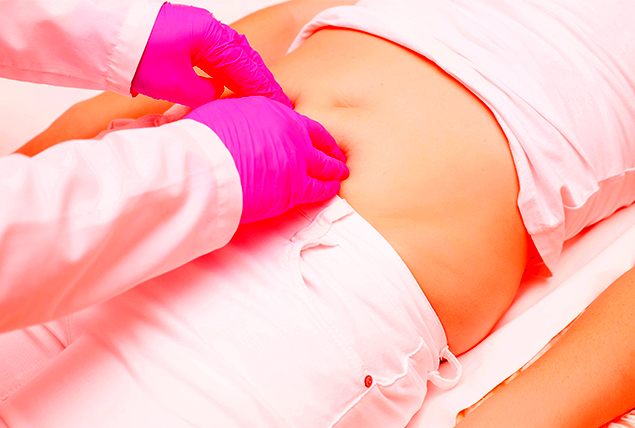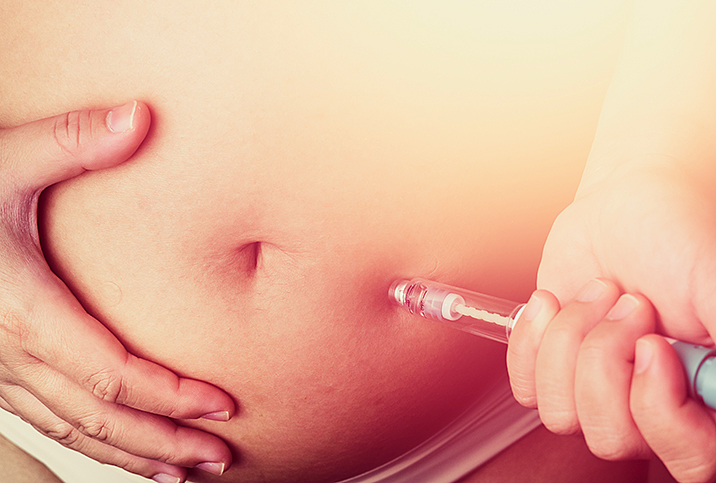Should I Have Sex When I Have Pelvic Inflammatory Disease?

Is there sex after pelvic inflammatory disease (PID)? Usually triggered by sex, PID is not a sexually transmitted infection (STI) or disease (STD) but is largely caused by them. The broad-ranging effects of PID require a little foresight and planning to help ensure it won’t cast a permanent shadow over bedroom fun.
What is PID and what causes it?
If you are one of the 1 million women diagnosed with PID each year, it's fair to wonder how PID might affect your life. The good news? Detected early, PID is fully curable with antibiotics.
"PID is an infection of the reproductive tract or upper genital organs, including, but not limited to, the uterus, tubes, ovaries and surrounding organs," said Sameena Rahman, M.D., a Chicago-based OB-GYN and the founder of the Center for Gynecology and Cosmetics.
Gonorrhea and chlamydia are the primary causes of PID. Both STDs may cause no symptoms or only vague symptoms in women, so it may take longer before someone receives treatment.
Left untreated, these STDs can lead to the development of PID, which can take days to weeks.
"Eight-five percent of cases are triggered by a sexually transmitted infection. The remainder of the time, it can be related to infections and bacteria from the gastrointestinal tract or the respiratory tract," Rahman said.
Who is at risk of contracting PID?
PID can have causes other than unprotected sex. However, women who are sexually active are at risk of developing PID. The condition is most common among younger women. Those younger than age 25 are more likely to develop the condition. Women with multiple sexual partners or a history of PID are at increased risk of contracting it.
A 2013 study in BMC Women’s Health suggested women who douche frequently are 73 percent more likely to develop PID. Why? Douching can potentially push bacteria into the body and into the uterus and fallopian tubes from the vagina.
Any behavior that pushes bacteria into your reproductive tract could lead to PID. This includes childbirth, insertion of an intrauterine device (IUD), pelvic surgery, a urinary tract infection and miscarriage.
How is PID diagnosed and treated?
To diagnose PID, a doctor will take a full history and complete a pelvic and physical exam. Sometimes the physician will also conduct blood tests, imaging, vaginal and urine cultures, and a pregnancy test.
Timely treatment for PID prevents long-term effects, particularly those that might affect fertility. According to the Centers for Disease Control and Prevention (CDC), 1 in 8 women with a history of PID will experience difficulty getting pregnant.
"Usually, antibiotics are the main way to treat it, and depending on the patient's condition and risk factors, either oral or intravenous antibiotics may be prescribed," Rahman said. "Partners should also be tested and treated. Once you have been treated, the symptoms should improve."
To prevent PID from developing again, you can lower your risk by not douching and avoiding scented products that can alter the natural pH balance of the vagina. Use a condom or a diaphragm, and consider a spermicide for every sexual encounter.
Speak with your doctor about the frequency of testing for sexually transmitted infections that is right for you.
What is the physical impact of PID
"PID can cause pain with sexual function and can impact sexual desire and arousal, as well" Rahman said. "PID can cause sexual function to be impeded and can affect future fertility, which impacts some patients' desire to have sex with partners."
Some patients find penetrative sexual intercourse painful, causing difficulties in fully engaging with their sexuality.
"Lower abdominal and belly and pelvic pain are the most prominent symptoms as well as new-onset pain with sex or certain movements, particularly in young patients," Rahman said. "Abnormal vaginal discharge, irregular spotting, pain during a pelvic exam or even spotting after sex can be symptoms."
Other potential symptoms include:
- Fever and chills
- Pain in the lower and upper right abdomen
- Abnormal menstrual bleeding
- Painful urination
The impact of these symptoms can be significant, particularly if they are left untreated. The general malaise associated with PID may make it difficult for some to engage in sexual activity, even after treatment.
Hold off on sex until after treatment
Sex with active PID is a relatively easy problem to solve. Don't do it.
"Patients should refrain from sexual activity until completed treatment," Rahman said.
It is possible to have sex while dealing with PID, but it is likely to be an uncomfortable and unpleasant experience. Save yourself the discomfort.
Set aside time outside of the bedroom to explain your condition. Discuss the need for your partner to get tested to rule out the infection. The bacteria that causes PID can live on a penis or a vagina. Protect your health and theirs.
"Depending on how your relationship is with the partner, they should be notified and instructed that you have an infection that was likely sexually transmitted, and the partner should seek assessment and possible treatment," Rahman said. "Patients can also have the partner notified anonymously or through a health department."
If the idea of waiting until treatment is complete is truly untenable, at least avoid penetration.
Instead of risking your health further and experiencing unnecessary discomfort or pain, experiment with mutual masturbation or roleplay. Build up the anticipation for when you can have penetrative sex again.
Dealing with the aftermath
After dealing with a medical condition, it may be difficult to reconnect with sex. When you’re ready, avoid going back into your trusted sexual routine. If you encounter any difficulties with pain or positions, it will feel more disheartening than if you try something less familiar.
Once you’ve spent some time restoring your foundation, you can rebuild the rest. Introduce sex toys, focus on the psychological play of sex by experimenting with roleplay, and find the fun in rediscovering each other.
Allow plenty of time to work through any emotional or physical fallout. There is no time limit on reigniting your sexuality. Don’t feel pressured to jump back into sex before you are ready.


















